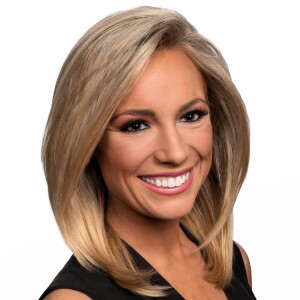The Rebound Indiana is a new initiative from WRTV to help you navigate the financial impact of the COVID-19 pandemic. We are your source to find all of the information you need on the help that’s available and how to access those resources. We are focused on helping you find employment, make ends meet, manage the pressure of these unprecedented times, and ensure these programs work as promised. Visit theINDYchannel.com/rebound for more information.
INDIANAPOLIS — If you are a woman 50 or older, this is your reminder to schedule your yearly mammogram if you skipped your regular appointment because of COVID-19.
According to Ascension St. Vincent, at just one of their screening centers in Indianapolis alone, 25,000 women missed their scheduled mammograms this year.
"One or two people a week," Dr. Erica Giblin, the Medical Director for Breast Care and Services at Ascension St. Vincent, said regarding how many women she saw during the stay-at-home order this year. "That means that there is a significant number of women out there walking around with breast cancer that just haven't identified it yet because they haven't done their screening."
Dr. Giblin says things are getting back to normal at Ascension St. Vincent after coronavirus concerns put a stop to elective procedures back in March.
On average at Ascension St. Vincent in Indianapolis, Dr. Giblin says the hospital screens up to 4,000 women a month for breast cancer. COVID-19 changed that.
"When they did the stay-at-home order, those numbers went down about 95 to 97 percent," Dr. Giblin said. "That is a lot. That begs the question, since the stay-at-home order has been lifted, have the women been coming back through their doors to get their mammograms because for that period of time, pretty much nobody was getting mammograms except if they presented a lump or something suspicious that was breast cancer."
Leanda Walls is a one-year breast cancer survivor. She is urging women to not wait an extra year to get their mammogram regardless of their risk factors.
"Since I was 40, I yearly had my check up, never missed," Walls said.
Every year for 18 years, Walls has gotten a mammogram and had no issues until 2019. With no family history of breast cancer, doctors found something in her screening. It was Stage 1 breast cancer.
"Do not wait," Walls said. "I went yearly, faithfully, every year, but within one year I had breast cancer. So, had I missed that next year appointment, it could have gone the worse way, it could have been worse. It is very important to keep checked."
Walls lost her husband and her 25-year-old daughter in 2014, now Walls says she will still go into the clinic even during the pandemic to check on her health not just for herself but for her family.
"My children, I have one daughter and three grandchildren and that is what I live for," Walls said.
Dr. Giblin worries too many women are skipping their appointments and missing important diagnoses.
"Two to three years from now we think we are going to see a significant number of women presenting advanced breast cancer because of this pandemic where they missed their mammogram," Dr. Giblin said.
Dr. Giblin wants to remind women not to let their concerns about COVID-19 get in the way of their overall health.
"The hospital is one of the safer places to come in to get your routine care, everyone is wearing a mask, they are cleaning the premises constantly, so if you compare coming into the hospital to get your screened mammogram as compared to going to your local Kroger or Lowes, the hospital is going to be a safer place," Dr. Giblin said. "So we just want people to understand that it is safe to come into your screened mammograms, they should not neglect their routine preventive health care even though there is a pandemic going on."
The latest guideline according to the American Cancer Society says all women should begin having yearly mammograms by the age of 45 years old and you can change to having mammograms every other year beginning at age 55. Women should have the choice to start screening with yearly mammograms as early as the age of 40 if they want to.





